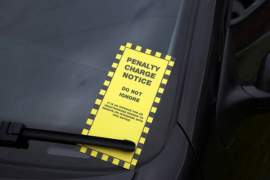
A Guide to Motorcycle Helmet Laws

Compared with passenger cars, motorcycles are much more dangerous as a form of travel. The United States federal government estimates that in 2007, for each mile traveled, the total number of deaths on motorcycles was about 37 times more than the number of deaths in cars. There were 5,112 deaths among motorcyclists in 2008 and 4,281 deaths in 2009. Often, motorcycles have excessive performance capabilities, such as rapid acceleration and high top speeds. Motorcycles are not as stable as cars in emergency braking situations and are less visible to other motorists. Motorcyclists are much more prone to accident injuries than car occupants since motorcycles are unenclosed, leaving motorcycles riders more vulnerable to contact with the road surfaces. This is why wearing protective clothing and helmets, is so important for motorcycle riders.
Helmets laws aim to work as a countermeasure for crash-related head injuries, which is a leading cause of death among riders who do not wear a helmet. Many other countries have helmet laws requiring all motorcyclists to wear helmets while riding, but less than half of the states in America have helmet laws in place. Many other states require certain riders to wear helmets under their helmet laws, but a few other states do not have any helmet laws in place.
Effectiveness of Helmet Laws
Based on various studies looking at the effects of states' repeal, weakening, and enactment of universal helmet laws, helmet use get closer to 100 percent when all motorcyclists are required to wear helmets. This is compared to approximately 50 percent of motorcyclists using helmets when no helmet law is applicable. According to a National Highway Traffic Safety Administration in 2010, 98 percent of motorcyclists were observed to wear helmets in states with universal helmet laws. In states without universal helmet laws, helmet use was only 48 percent in 2010. When considering helmets that were compliant with federal safety regulations, proper helmet use was at 76 percent in 2010 in states with universal helmet laws, as opposed to 40 percent in states without universal helmet laws.
Helmet Laws in the United States
Currently, 47 states as well as Guam, the District of Columbia, Puerto Rico, the Northern Mariana Islands, and the United States Virgin Islands have helmet laws in place for motorcyclists. Out of these states with helmet laws, 20 of the states, the District of Columbia, Puerto Rico, the Northern Mariana Islands, and the United States Virgin Islands have a helmet law that is universal for all riders. The other 27 states as well as Guam have specific helmet specifications. Only three states do not have motorcycle helmet laws at all. These states are Illinois, Iowa, and New Hampshire.
States by State Helmet Laws
• States with universal helmet laws: Alabama, California, Georgia, Louisiana, Maryland, Massachusetts, Michigan, Mississippi, Missouri, Nebraska, Nevada, New Jersey, New York, North Carolina, Oregon, Tennessee, Vermont, Virginia, Washington, Wisconsin
• States with partial Laws: Alaska (17 and younger), Arizona (17 and younger), Arkansas (20 and younger), Colorado (17 and younger for both drivers and passengers), Connecticut (17 and younger), Delaware (18 and younger), Florida (20 and younger), Hawaii (17 and younger), Idaho (17 and younger), Indiana (17 and younger), Kansas (17 and younger), Kentucky (20 and younger), Maine (17 and younger), Minnesota (17 and younger), Montana (17 and younger), New Mexico (17 and younger), North Dakota (17 and younger), Ohio (17 and younger), Oklahoma (17 and younger), Pennsylvania (20 and younger), Rhode Island (20 and younger), South Carolina (20 and younger), South Dakota (17 and younger), Texas (20 and younger), Utah (17 and younger), Wisconsin (17 and younger), Wyoming (17 and younger)
NEXT: Seat Belt Laws in the United States




















